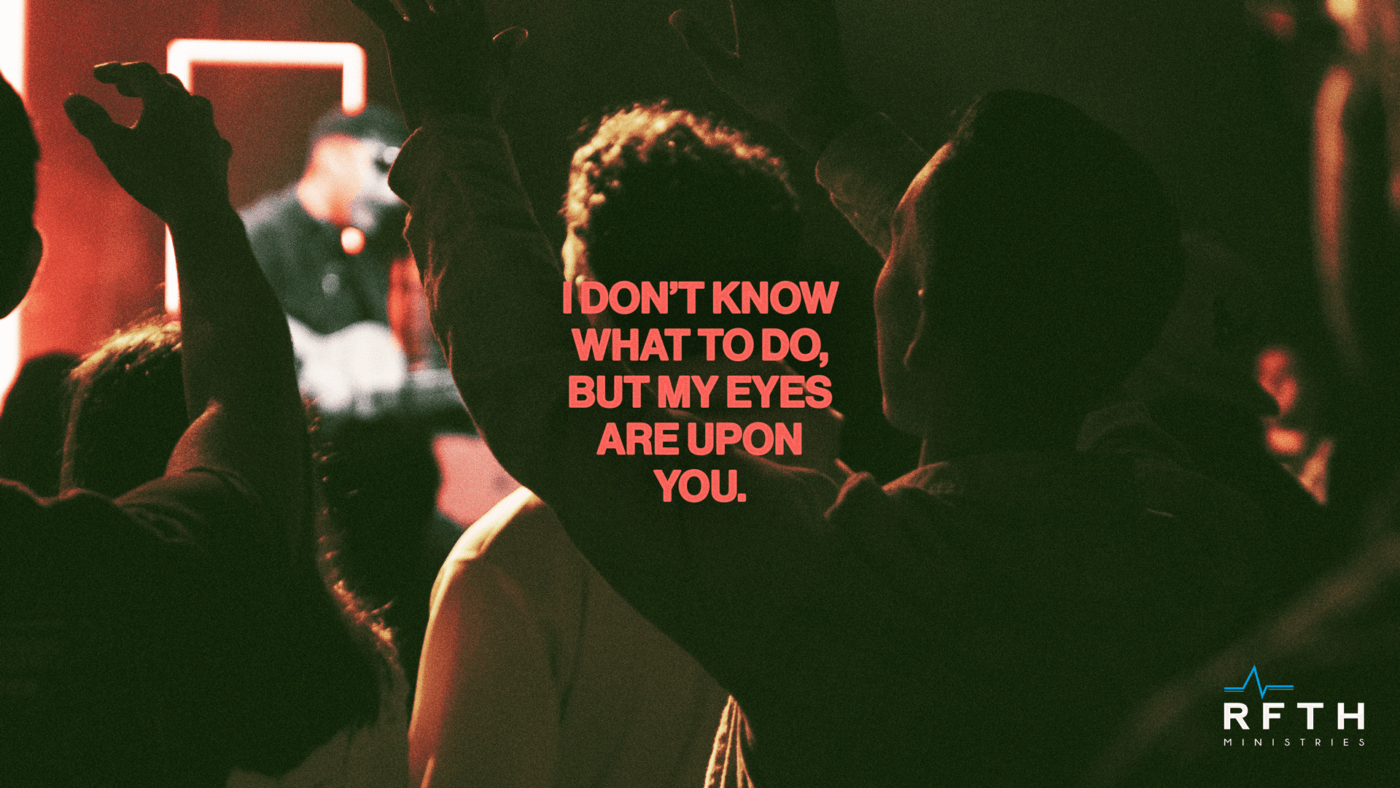
“Lord, we do not know what to do, but our eyes are on You.”
2 Chronicles 20:12
We are a problem-solving people.
If something is broken, we fix it. If something is wrong, we try to make it right. It’s just the way we’re wired.
So, it’s incredibly frustrating when we encounter a difficulty beyond our capability to solve. Try as we may, there’s nothing we can do to improve our predicament. We feel helpless. Powerless. Desperate for a solution. Fear begins to grip our hearts and rattle our bones. We silently wonder, “What am I going to do? How am I going to survive?”
The Bible tells us that King Jehoshaphat and the nation of Israel found themselves in exactly this kind of situation. An enormous army contrived of several surrounding nations was marching to wipe them off the map (2 Chronicles 20:1,2). From a human perspective, death was imminent. Destruction, sure. That is, unless the Lord intervened…
So, Jehoshaphat did what many of us do when we feel helpless. He prayed. Notice that his prayerful plea is made up of two powerful phrases.
First, he flat-out confessed, “I don’t know what to do!”
Jehoshaphat began with a raw, honest admission of his own limitations. He declared, “We have no power to face this vast army that is attacking us” (2 Chronicles 20:12). In other words, even if Jehoshaphat gathered all of Israel’s weapons and soldiers, they would still get absolutely crushed on the battlefield. Their power, even the very best of it, was simply not enough.
But admitting we are powerless is a great way to begin any prayer. Why? Because it puts us in the right frame of mind, the proper posture of heart. As Pastor Louie Giglio explains, “Humility…is the place we access God’s supply. Humility is essential because it positions us for supernatural assistance.”
Maybe you need supernatural assistance today. If so, it’s okay to admit, “I don’t know what to do.” You’re not supposed to have all of the answers. Instead, run to the One who does. Profess your dependence on the God who is “able to do more than you can imagine” (Ephesians 3:20).
And this is precisely what Jehoshaphat did in the second phrase of his prayer: “But our eyes are upon You.”
With great resolve, he fixed his eyes on the only One who could save Israel from certain death. No matter what happened, Jehoshaphat chose to keep seeking the face of God until the very end.
And we must do the same.
You see, while we may not have a choice about what crises come our way, we do have a choice about where to look. We can either focus on the crisis, with all of its accompanying issues, or we can focus on the God who specializes in doing the impossible.
Granted, looking to the Lord won’t make the crisis disappear, but it will re-size it. In light of our Awesome, Almighty, All-Powerful God, everything else shrinks down to size.
While our problems may be bigger than us, they’re certainly not bigger than Him. So, as the writer of Hebrews says, we must “fix our eyes on Jesus” over and over again (Hebrews 12:2).
Remember, when we were totally powerless, Jesus defeated our two greatest enemies – sin and death. Surely the God who delivered us then will take care of us now, when we need Him the most!
My humble advice to you?
Until you see His deliverance, grab hold of Jehoshaphat’s prayer like it’s your lifeline. Let it be a prayer that, in the words of Charles Spurgeon, “pulls the rope below and rings the great bell in the ears of God.”
Hold on, my friend. Keep ringing the bell.
He hears you. Help is on the way…
*To find out how Jehoshaphat’s story ends, read- 2 Chronicles 20:12-30.
Written by Jonathan Munson, Executive Director, RFTH
DIG DEEPER
Read “Trusting God in the Tough Times” by Bryant Wright






